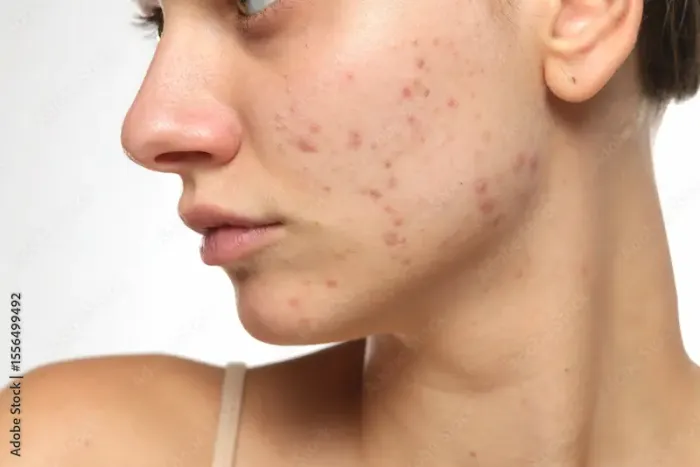Best Home Remedies to Reduce Open Pores Naturally
Looking for an open pores remedy? Discover safe, science-backed skincare beauty tips to minimise the look of large pores at home.

Written by Dr. Siri Nallapu
Reviewed by Dr. Shaik Abdul Kalam MD (Physician)
Last updated on 13th Jan, 2026

Introduction
Large or “open” pores are a common skincare concern. They can make skin look uneven, cause makeup to settle unevenly, and lead to shine in oily areas. The good news is that while you can’t permanently shrink your pore size, you can visibly minimise their appearance with gentle, consistent care. This open pores remedy guide shares practical, dermatologist-informed beauty tips you can try at home to achieve smoother, more refined skin texture.
Important Truth First
• Pores don’t open or close like doors.
• Genetics, oil production, sun exposure, and ageing all influence how visible pores appear.
• You can minimise the look of pores by controlling oil, keeping them clear, protecting your skin from UV damage, and supporting healthy cell turnover.
What Causes “Open” or Enlarged Pores?
Understanding the root cause helps you target them effectively.
• Excess oil (sebum): Oily skin stretches pores, making them appear larger.
• Genetics and skin type: Some people naturally have more visible pores.
• Ageing and sun damage: Loss of collagen and elastin reduces skin firmness, exaggerating pore size.
• Clogged pores and acne: Blackheads and whiteheads widen pore openings.
• Hormones and environment: Heat, humidity, and hormonal fluctuations increase oil production.
Effective, Evidence-Based Home Care
Here are some evidence based home care tips to open pores naturally:
Cleanse Gently, Twice Daily
• Use a mild, non-comedogenic cleanser morning and night.
• Oily or acne-prone? Try a salicylic acid (BHA) cleanser to dissolve oil and buildup inside pores.
• Avoid harsh scrubs or excessive washing—they can irritate skin and trigger more oil.
Exfoliate Smartly (1–3 Times Per Week)
• Choose chemical exfoliants over gritty scrubs.
• BHAs (Salicylic acid): Deep-clean pores and control oil.
• AHAs (Glycolic or lactic acid): Smooth surface texture and boost radiance.
• Start once a week and increase as tolerated. Overdoing it can irritate skin and make pores look worse.
Try a Retinoid for Skin Renewal
• Over-the-counter adapalene or retinol helps unclog pores and smooth uneven texture.
• Use a pea-sized amount at night, 2–3 times a week, followed by moisturizer.
• Always wear sunscreen daily when using retinoids.
Use Niacinamide (Vitamin B3)
• A 2–5% niacinamide serum balances oil, soothes redness, and improves overall texture—making pores appear smaller.
• It’s gentle and works well with most skincare routines.
Clay Masks for Quick Mattifying
• Kaolin or bentonite clay masks absorb excess oil and make pores look smaller temporarily.
• Use 1–2 times a week if you have oily skin, followed by moisturiser.
Moisturize Without Clogging
• Hydrate with lightweight, non-comedogenic gels or lotions.
• A healthy skin barrier helps reduce reactive oiliness and irritation.
Sun Protection Every Day
• UV rays damage collagen, making pores look bigger.
• Use SPF 30+ broad-spectrum, oil-free sunscreen daily.
• Reapply every 2 hours when outdoors. Tinted mineral sunscreens can also help blur pores.
Makeup That Blurs, Not Blocks
• Silicone-based primers smooth texture and reduce the look of pores.
• Always choose non-comedogenic foundations and remove makeup gently before bed.
Consult Top Specialists
Natural and DIY Approaches: What Helps and What to Skip
Here are some approaches to help open pores naturally:
Simple, Safe Habits That Help Naturally
• Cool compress: Temporarily reduces puffiness and redness.
• Blotting papers: Absorb surface oil without stripping the skin.
• Minimalist routines: Fewer, well-chosen products reduce irritation.
• Gentle cleansing massage: Aids makeup removal without rough scrubbing.
Be Cautious With These
• Lemon juice, vinegar, baking soda: Can burn or disrupt skin’s pH.
• Ice cubes: Temporary tightening effect, but can irritate skin.
• Harsh scrubs and pore strips: Cause micro-tears and worsen redness.
• DIY acids (like yoghurt masks): Unpredictable pH—store-bought products are safer.
Sample Skincare Routine for Minimising Pores
Here’s a skincare routine for minimising pores:
Morning
1. Gentle cleanser
2. Niacinamide serum (optional)
3. Lightweight, oil-free moisturiser
4. SPF 30+ sunscreen
Evening
1. Gentle or salicylic acid cleanser
2. Retinoid (2–3 nights a week)
3. Non-comedogenic moisturizer
Weekly Add-ons
• BHA or AHA exfoliation 1–3 times weekly
• Clay mask once a week
Lifestyle Choices That Support Smooth-Looking Skin
Here are some lifestyle changes that support smooth-looking skin:
• Sun-smart habits: Use shade, hats, and daily SPF to protect collagen.
• Don’t smoke: Smoking accelerates ageing and enlarges pores.
• Balanced diet: Favour low-glycemic foods (veggies, legumes, whole grains) over sugary ones.
• Hands off: Avoid squeezing or picking blemishes.
• Be patient: Results take 6–12 weeks of consistent care.
When to See a Dermatologist?
If large pores, acne, or texture issues persist, consult a dermatologist. Professional treatments can help, including:
• Prescription retinoids
• Chemical peels
• Microneedling
• Laser or light therapy
• Professional-grade exfoliation and extraction
Your dermatologist can tailor options to your skin type and needs.
Consult Top Specialists
Consult Top Specialists
Dr. Kavitha Killaparthy
Dermatologist
23 Years • MBBS,DIPLOMA(DERMATOLOGY,VENEREOLOGY,LEPROSY)
Hyderabad
JDS Skin & Hair Clinic, Hyderabad
Dr. Mayuri Jain
Dermatologist
11 Years • MBBS, MD Dermatology , Venereology & Leprosy
Delhi
Dr Mayuri Jain Clinic, Delhi

Dr Ekansh Shekhar
Dermatologist
10 Years • MBBS MD
Lucknow
Apollo Clinic Hazratganj, Lucknow
Dr.j Girishma
Dermatologist
6 Years • MBBS MD DERMATOLOGY
Bengaluru
Apollo Medical Center, Marathahalli, Bengaluru

Dr. Swathi Thadishetti
Dermatologist
14 Years • MBBS, MD (Dermatology, Venereology & Leprosy)
Karim Nagar
RKD Hospital, Karim Nagar
Consult Top Specialists
Dr. Kavitha Killaparthy
Dermatologist
23 Years • MBBS,DIPLOMA(DERMATOLOGY,VENEREOLOGY,LEPROSY)
Hyderabad
JDS Skin & Hair Clinic, Hyderabad
Dr. Mayuri Jain
Dermatologist
11 Years • MBBS, MD Dermatology , Venereology & Leprosy
Delhi
Dr Mayuri Jain Clinic, Delhi

Dr Ekansh Shekhar
Dermatologist
10 Years • MBBS MD
Lucknow
Apollo Clinic Hazratganj, Lucknow
Dr.j Girishma
Dermatologist
6 Years • MBBS MD DERMATOLOGY
Bengaluru
Apollo Medical Center, Marathahalli, Bengaluru

Dr. Swathi Thadishetti
Dermatologist
14 Years • MBBS, MD (Dermatology, Venereology & Leprosy)
Karim Nagar
RKD Hospital, Karim Nagar
More articles from Skin Care
Frequently Asked Questions
1) Can you permanently shrink pores?
No. Pore size is largely genetic. You can’t permanently change it, but you can minimise the appearance through oil control, exfoliation, retinoids, niacinamide, and daily sun protection.
2) Are ice cubes or cold water an effective open pores remedy?
Cold can temporarily make skin look less flushed, but it doesn’t change pore size. Any effect is short-lived. Focus on consistent skincare and sun protection for longer-lasting results.
3) Which ingredients help reduce the look of pores?
Salicylic acid (BHA), retinoids (adapalene or retinol), niacinamide, and gentle AHAs can help keep pores clear, smooth texture, and reduce shine. Clay masks can provide a short-term mattifying effect.
4) Do toners with alcohol make pores smaller?
No. Alcohol-heavy toners can strip natural oils, irritate the skin, and potentially increase oil production later. Choose alcohol-free, gentle formulas with ingredients like niacinamide instead.
5) How long does it take to see results?
Expect gradual results over 6–12 weeks with consistent use of the right products (salicylic acid, retinoid, sunscreen). Temporary improvements from clay masks or primers are immediate but short-term.




